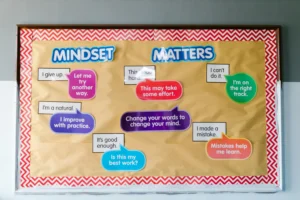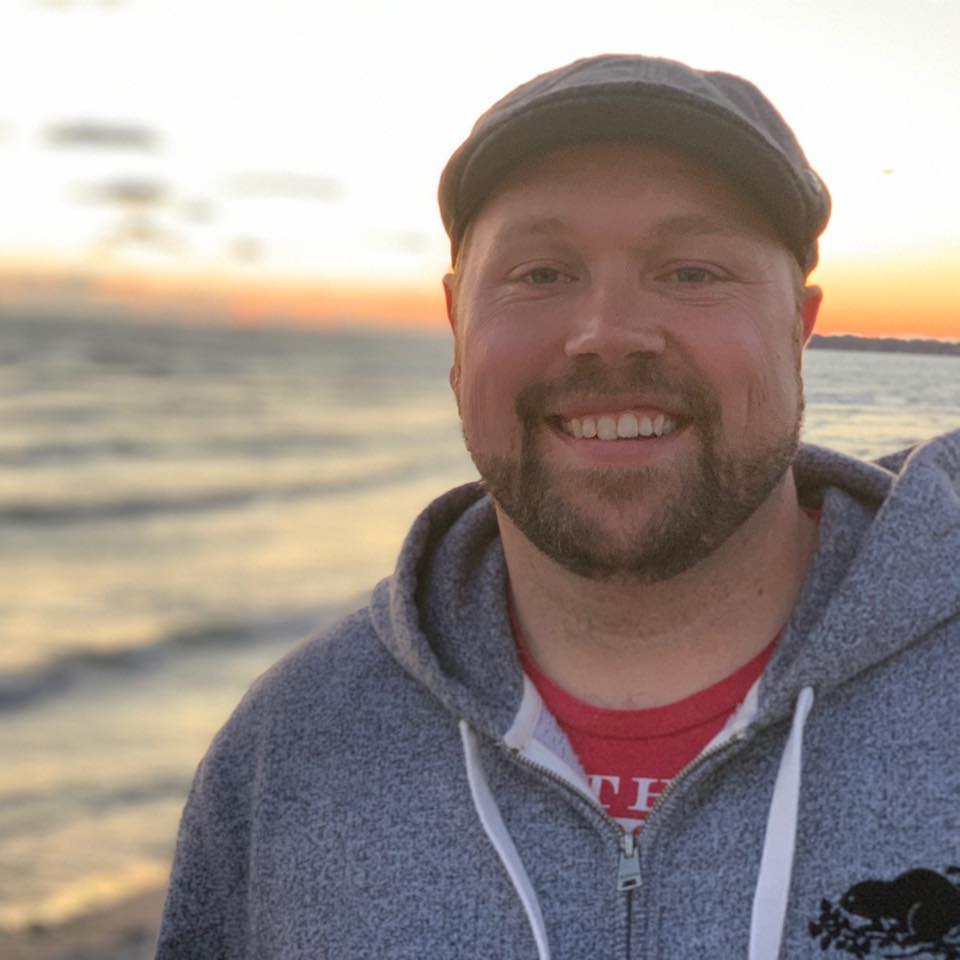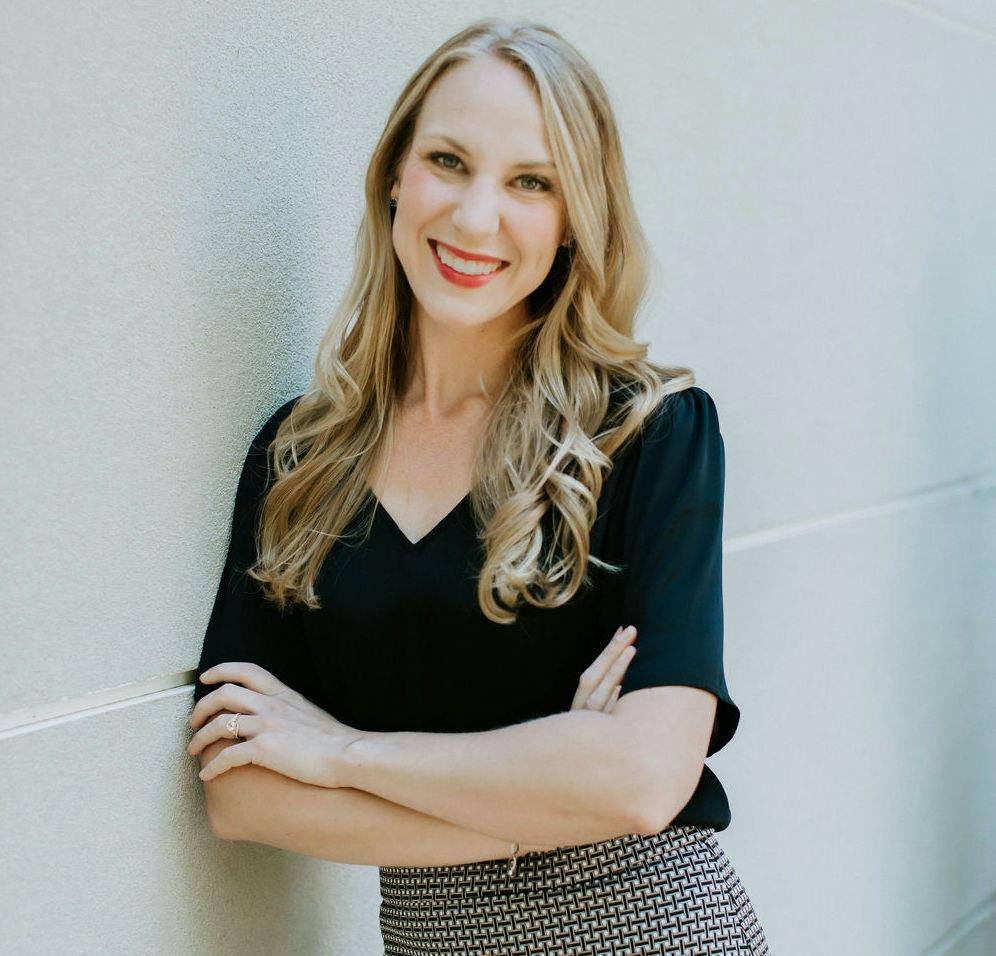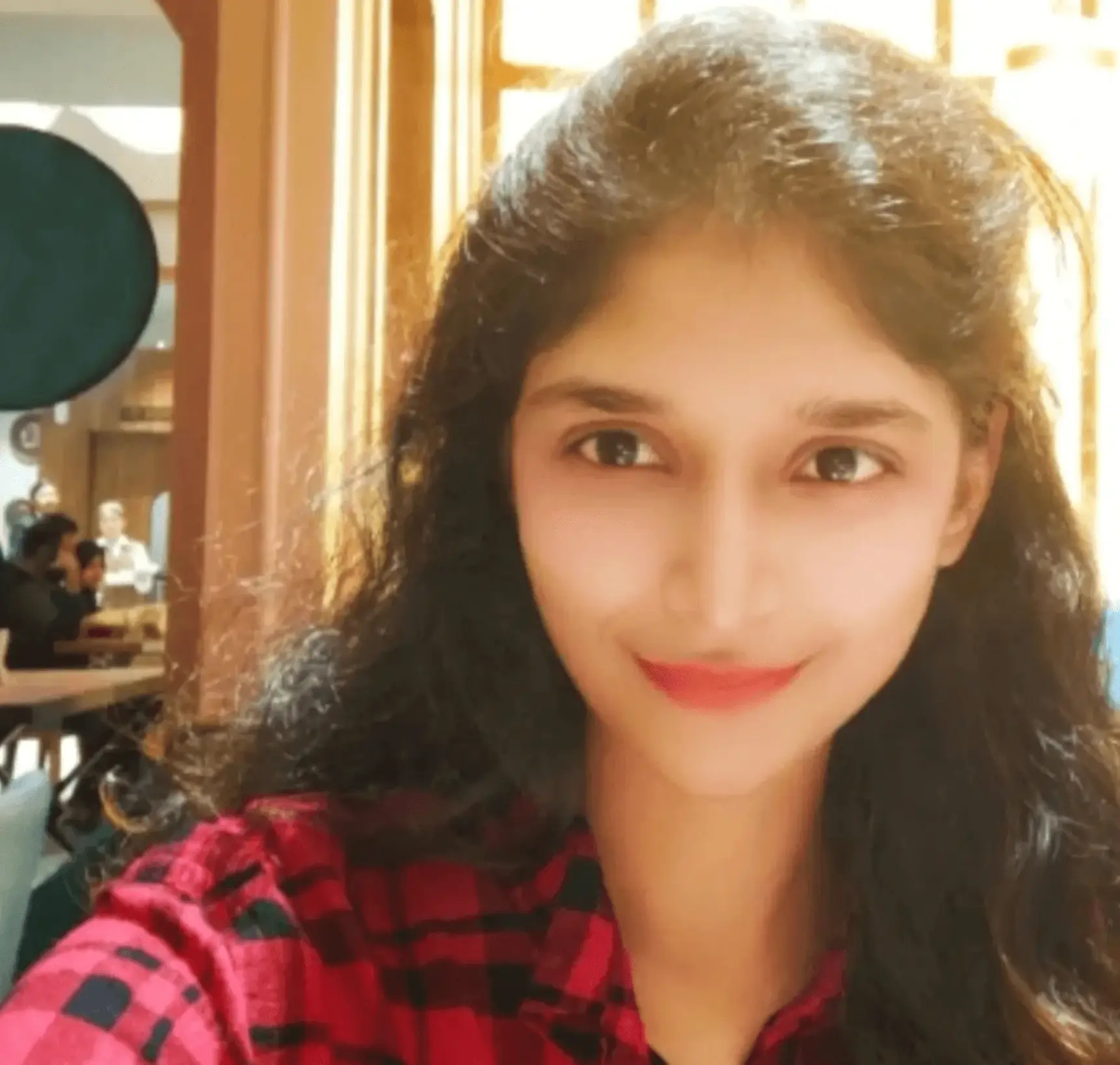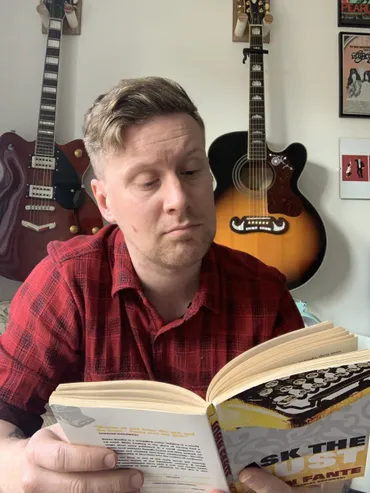In your 20s, you are in the prime of your life. This is when you should be establishing good habits that will carry with you into the future.
Habits are important because they define who we are and what we stand for. They dictate how we act and react in different situations.
If you want to live a successful and fulfilling life, it’s important to develop good habits while you’re young.
In this blog post, I will discuss some of the best habits to develop in your 20s and advice for each one.
Why should you develop good habits?
Do you want the most out of life in terms of your health, physique, relationships, and success? Then it’s essential to create good habits.
While it might seem intimidating to add new habits into your life, keep in mind that it’s scientifically proven to get easier the more you take action, remind yourself, and get a reward.
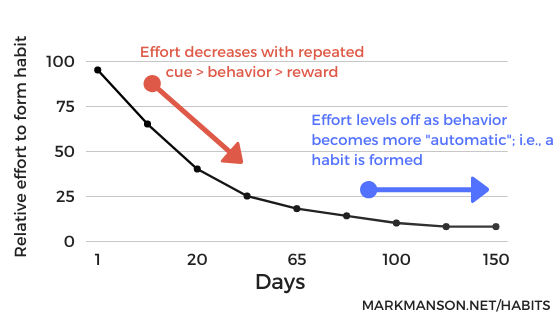
Some of the best habits to develop in your 20s include:
- Being positive and optimistic.
- Setting goals and working towards them.
- Staying healthy and active.
- Be patient and persistent.
- Learning new things regularly.
- Saving money and being financially responsible.
- Spending time with family and friends.
These are just a few examples of good habits to develop in your 20s. I’ll be deep-diving into 15+ habits later in this article.
How can I improve my life in my 20s?
How you spend your 20s can change the rest of your life. Literally.
What you do on a daily basis changes your trajectory.
Having the right habits and practices will improve your finances, health, happiness, and confidence.
It’s never too late to start, but it is much easier (and more fun) to implement these habits in your 20s than later on.
The key is to get started today. Even if you can only commit to one of these items, that’s a great start.
First, look at all of the areas in your life.
Health … finances … relationships … you name it.
Then, think about the ways you can improve these areas.
What are some things you can do on a daily basis to make small changes?
Remember, it’s the little things that make the biggest difference in the long run.
If you want to improve your health, you could commit to working out three times per week or eating healthier meals.
To improve your finances, you could start tracking your spending and saving money each month.
And to improve your relationships, you could spend more quality time with family and friends or volunteer in your community.
That brings me to my next point.
What should you not do in your 20s?
Here’s the thing…
While you want to spend your time wisely, it’s also important to know what not to do.
Just as there are good habits to develop, there are also bad habits you should avoid.
Some of the worst things you can do in your 20s include:
- Not setting goals or having a plan.
- Not taking care of your health.
- Ignoring your finances.
- Being negative and pessimistic.
- Procrastinating and being lazy.
- Avoiding new experiences.
- Failing to learn from your mistakes.
I love this video from Patrick Bet-David on what he calls the “20-20-20-20 Rule” that covers this exact topic perfectly.
Good habits to develop in your 20s
Now, onto the fun stuff! Let’s talk about habits to start working on.
A consistent exercise schedule
This is something you should start in your 20s and carry with you throughout your life.
It’s important to find an exercise routine that works for you and stick with it.
Not only will this improve your physical health, but it will also boost your mental health.
Exercise has been shown to improve mood, cognitive function, and energy levels.
It can also help reduce stress, anxiety, and depression.
If you don’t already have a consistent exercise routine, now is the time to start!
You don’t have to go overboard at first. Just commit to working out three times per week for 30 minutes each time.
You can gradually increase the frequency and duration of your workouts as you get more comfortable.
But, most importantly, find something you enjoy and stick with it!
There are so many different types of exercise out there and they all affect the brain differently.
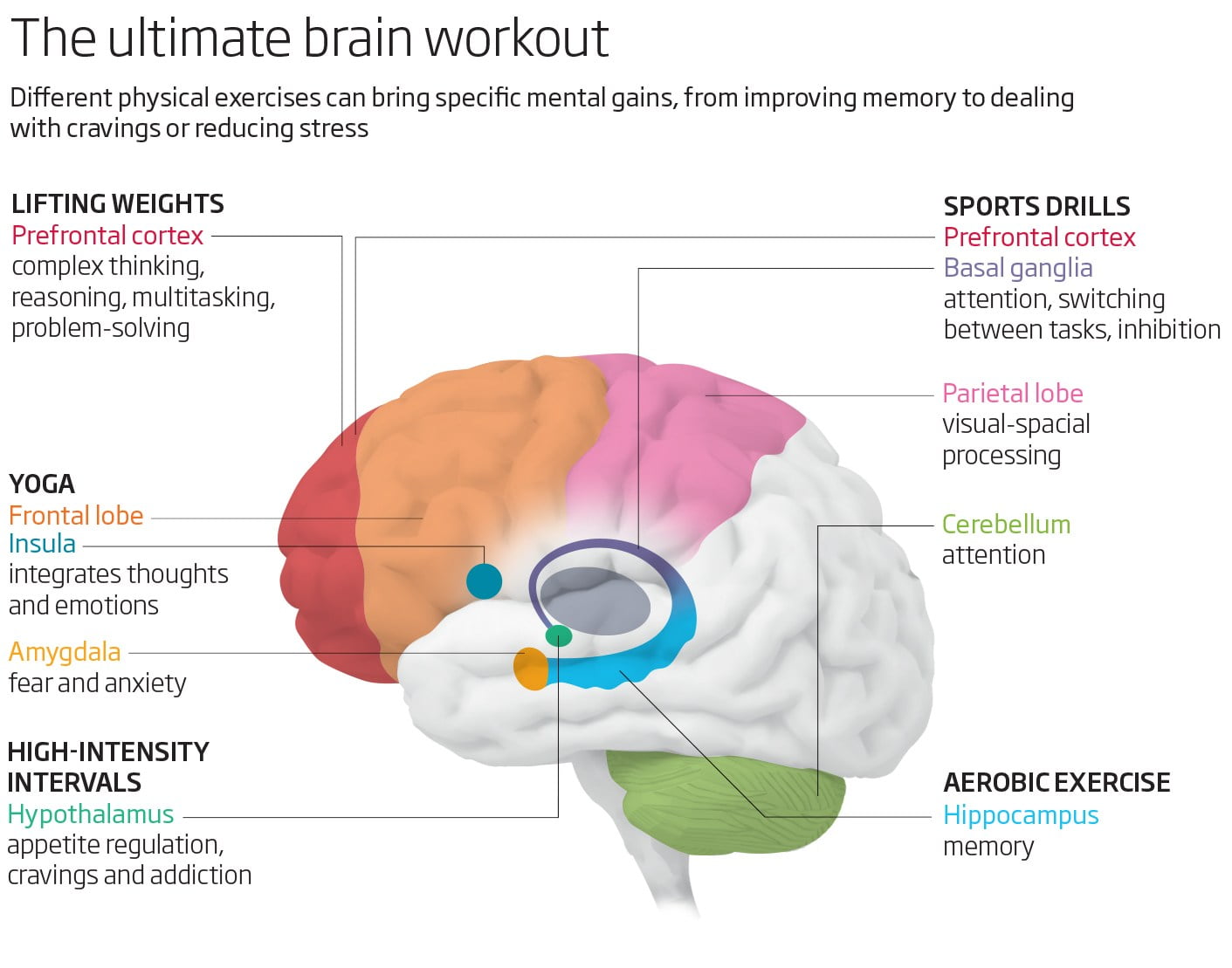
Find one (or a few) that you enjoy and make it a part of your regular routine.
Some of my favourite exercises include running, lifting weights, yoga, and HIIT workouts.
What are some of yours?
Developing a consistent exercise habit is one of the best things you can do for your health in your 20s (and beyond!).
Not only will it improve your physical health, but it will also boost your mental health.
So get moving and start reaping the benefits today!
Morning and evening routine
I love waking up early and going to bed early.
It feels great.
However, everyone is different.
The important thing is to wake up and sleep at a regular time every day.
This will help improve your energy levels, mood, and productivity.
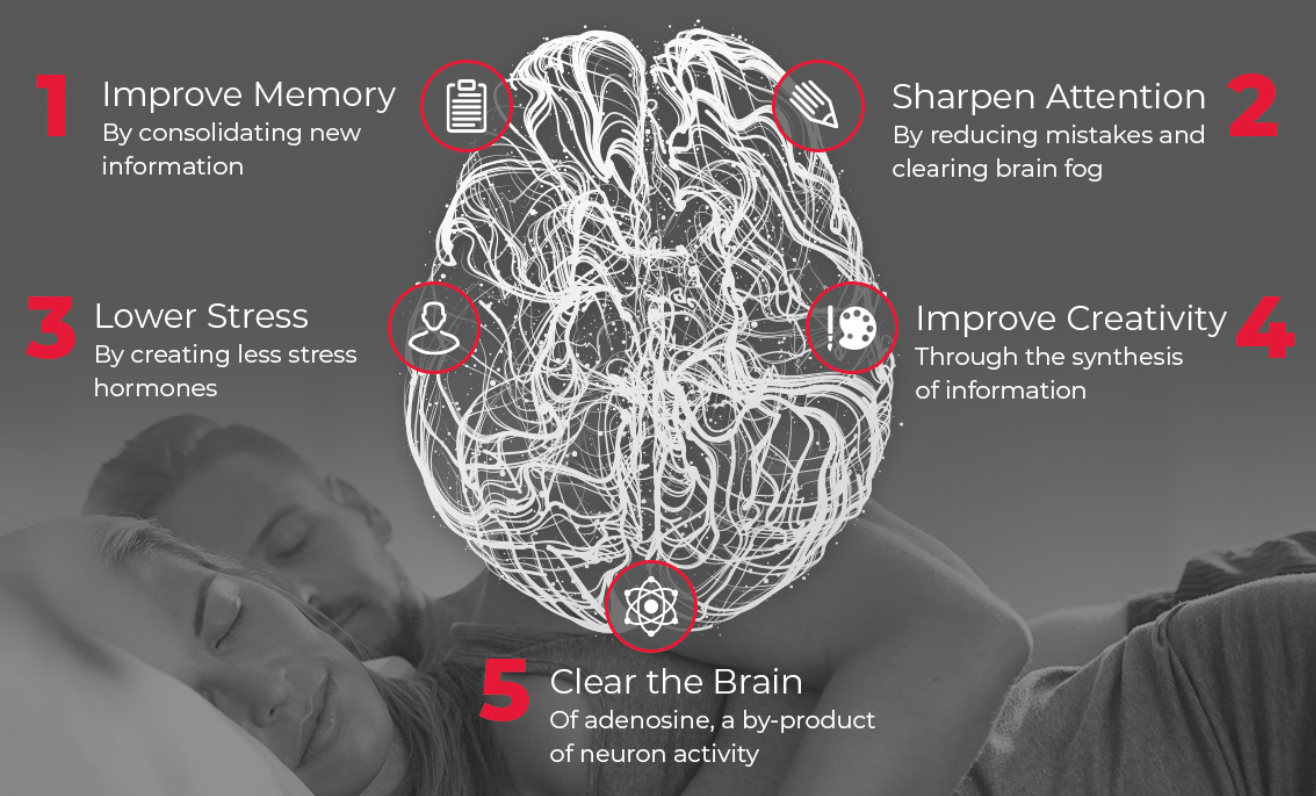
It’s also important to have a consistent routine before bed and in the morning.
Doing things like reading, journaling, meditating, or stretching can help you wind down at night and start your day on the right foot.
Find what works for you and stick with it!
Daily journalling
Another small habit that I love is journalling.
It allows me to collect my thoughts, think about my goals, and reflect on what I’m experiencing.

I highly recommend giving it a try!
There are so many benefits of journaling.
It can help reduce stress, anxiety, and depression.
It can also help you process your thoughts and emotions.
Not to mention, it’s a great way to document your life and track your progress over time.
If you’re not sure where to start, just grab a notebook and start writing.
You can write about anything and everything that comes to mind.
There is no right or wrong way to do it.
Just let the words flow!
Spend time with family and loved ones
This is something that I’ve been trying to do more of lately.
I’m so grateful for my family and loved ones, and I want to make sure that I spend quality time with them.
Life is short, and it’s important to cherish the people who matter most to you.
So, make an effort to spend time with your family and friends on a regular basis.
It doesn’t have to be anything fancy. Just hanging out, chatting, and doing everyday activities together can be really special.
Studies have found that good relationships are the best predictor of a happy life.
Make the most of your relationships and enjoy the time you have together!
Spending time with them is a great way to relax, recharge, and feel loved and supported.
It’s also a great way to stay connected and build strong relationships.
So make an effort to spend time with your family and friends on a regular basis.
You’ll be glad you did!
Set and reassess your goals
Without concrete goals, you’ll navigate life in a daze.
It’s easy to get caught up in the day-to-day and forget about what you’re working towards.
That’s why it’s important to set goals and reassess them regularly.
Think about what you want to achieve in the short-term, medium-term, and long-term.
Then, make a plan for how you’re going to achieve those goals.
Finally, check in with yourself periodically to see how you’re progressing.
For example, I have a spreadsheet with different categories that I review every week.
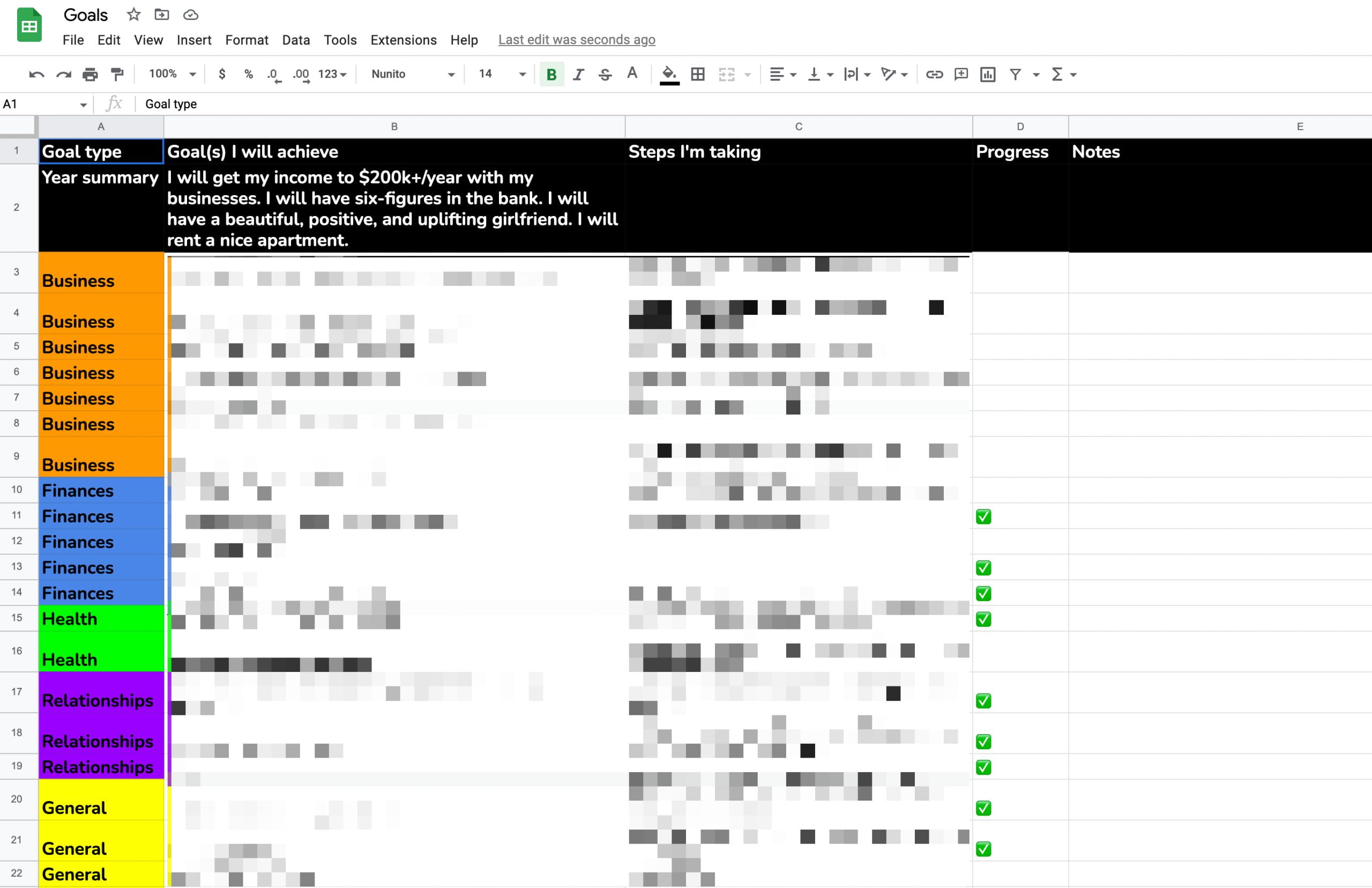
It’s okay if your goals change over time! Just make sure that you’re always moving forward.
It gives you a sense of purpose and direction.
So don’t be afraid to dream big and go after what you want!
Meditation and mindfulness practices
One of the most important habits for me is meditation.
It allows me to remain present, calm, and focused throughout the day.
There are many different ways to meditate, so find a method that works for you.
You can try guided meditation, mindfulness meditation, or even a simple breathing exercise.
Here’s a guided meditation from Eckart Tolle you can give a shot:
Start with just a few minutes each day and work your way up from there.
You may also want to try other mindfulness practices such as yoga, Tai Chi, or Qigong.
Read on a regular basis
Imagine being able to learn from the world’s most successful and influential people every day…
That’s the power of developing a reading habit.
When you read, you expose yourself to new ideas and perspectives.
You also gain a deeper understanding of the world around you.
Reading can also help you improve your writing skills and learn more about grammar and style.
Not to mention, it’s a great way to relax and unwind!
In fact, reading can reduce stress 300% more than going for a walk.
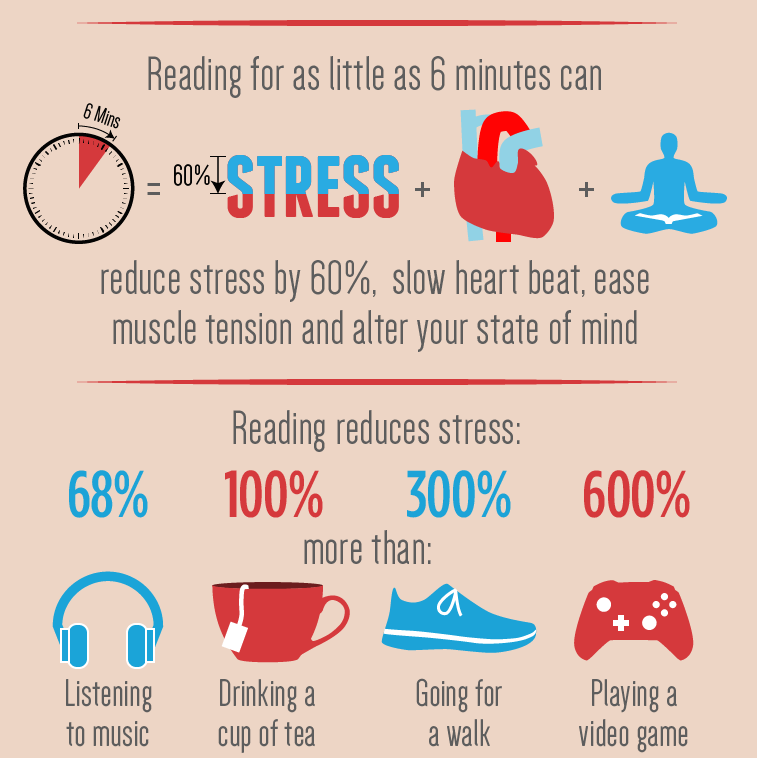
So make sure to carve out some time each day for reading.
It can be anything from a blog post to a novel to a magazine article.
Just make sure that you’re reading something that you enjoy.
Volunteering
Giving back is one of the most fulfilling things you can do.
And you don’t have to be a millionaire to give back.
Volunteering is something we can all do to help and give back to our communities.
It’s a great way to meet new people, learn new skills, and make a difference in the world.
And it doesn’t have to take up a lot of your time!
Even just an hour or two each week can make a big impact.
To find volunteering opportunities, search Google for “Your city + volunteer opportunities.”
This will display volunteer databases and websites. For example, here’s one for the Toronto area:
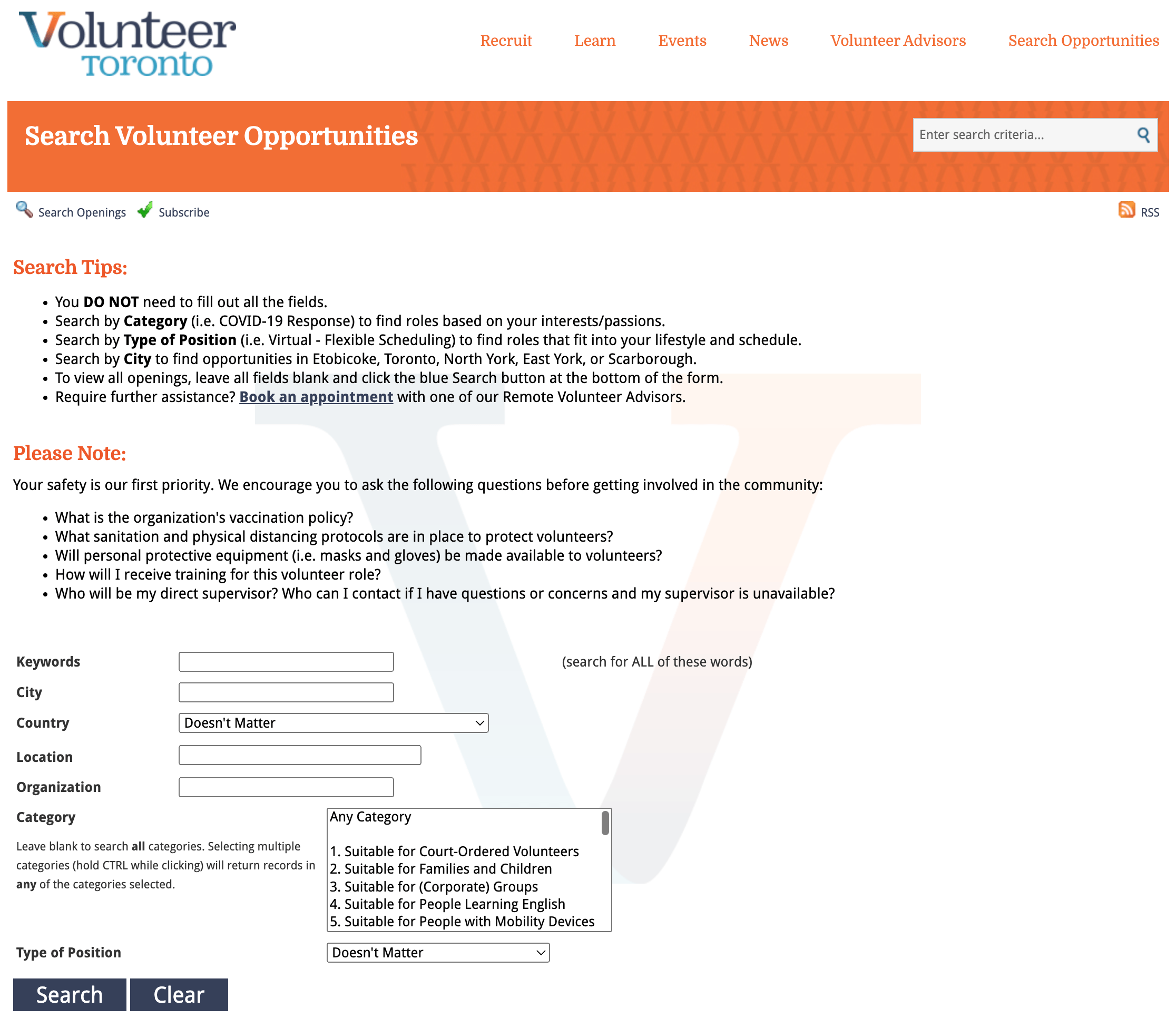
Filter the results according to what you’d like and apply for any opportunities that seem exciting!
Public speaking
If you’re looking to improve your communication skills, public speaking is a great way to do it.
It’s also a great way to build confidence and overcome any fears you may have of speaking in front of others.
Start small by giving speeches or presentations to your friends or family.
Then, work your way up to larger groups.
Try searching Meetup for relevant networking events in your area.
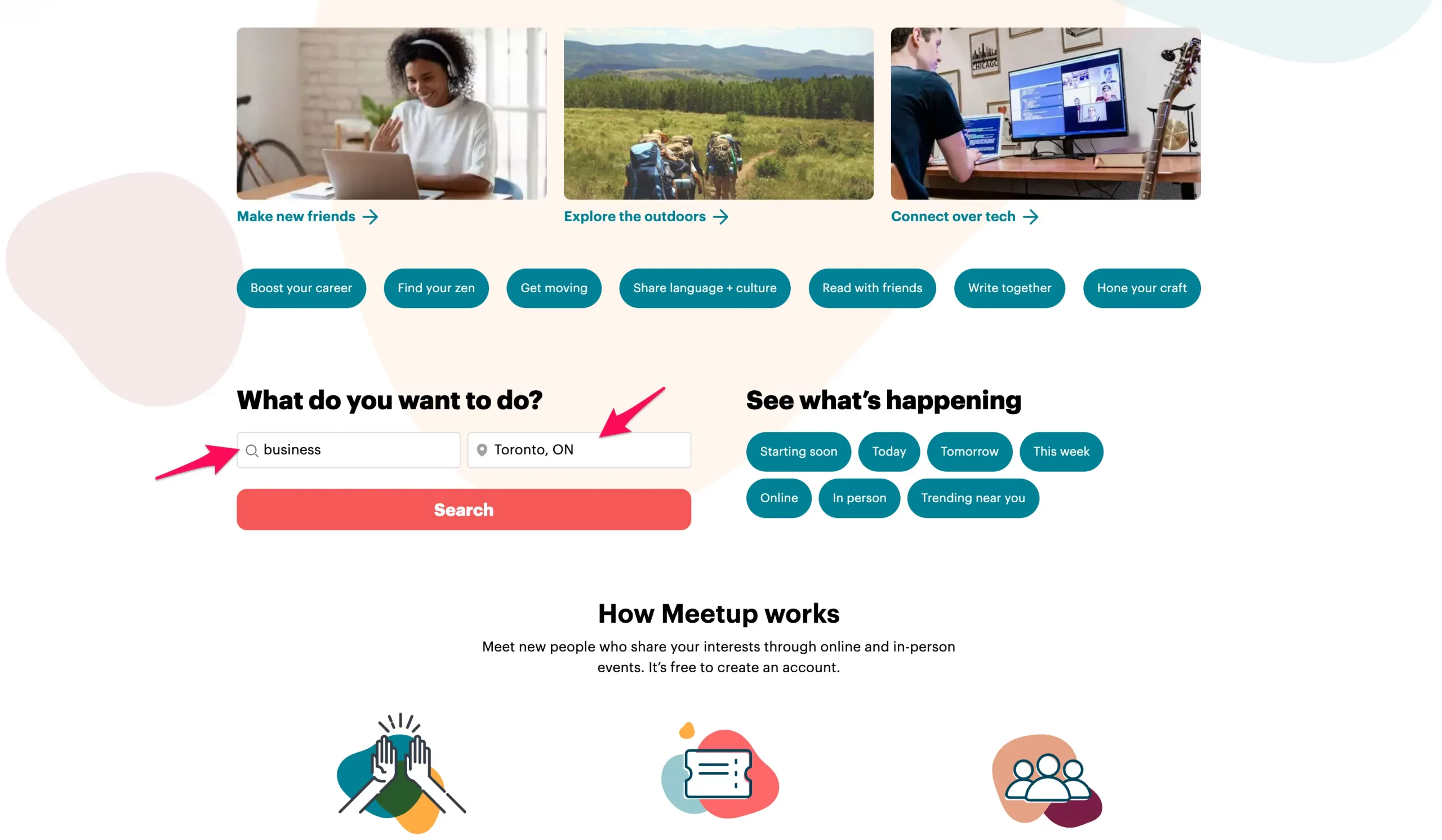
Select a group or event and reach out to the organizer. They may be looking for speakers.
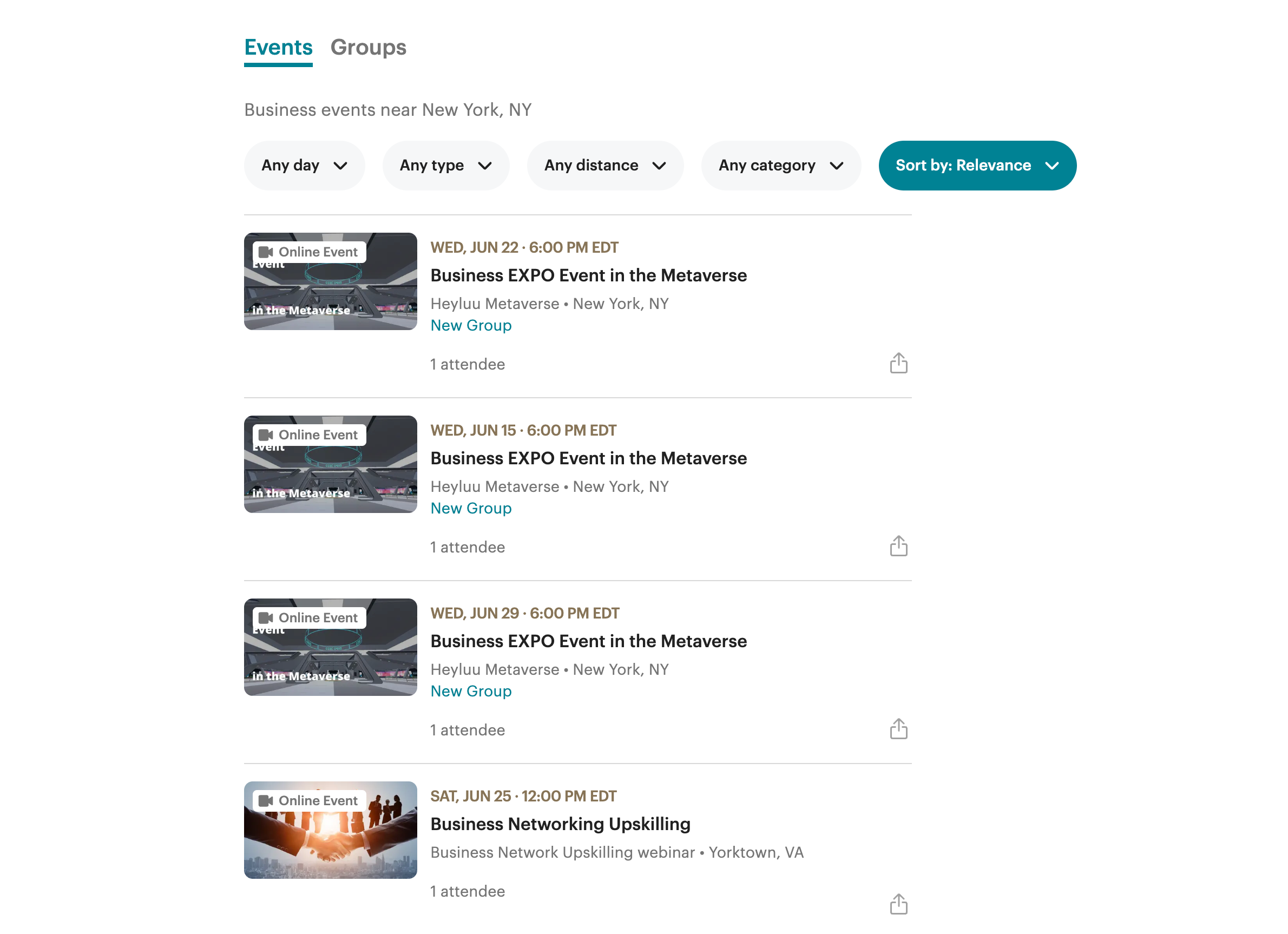
You can also join Toastmasters, which is an organization that helps people with their public speaking skills.
If you run a business or want to take your career to the next level, it’s an incredible skill to have for networking too.
I’ve gotten countless clients and opportunities thanks to the public speaking I’ve done.
You see, as soon as you’re on stage… you’re an authority.
People look up to you and trust you.
So, it creates the perfect opportunity to brand yourself and mention your products or services.
That brings me to my next point.
Attend networking events
Networking is one of the most important things you can do for your career.
It’s a great way to meet new people, learn about new opportunities, and build relationships.
79% of professionals believe it’s key to growing in their field.
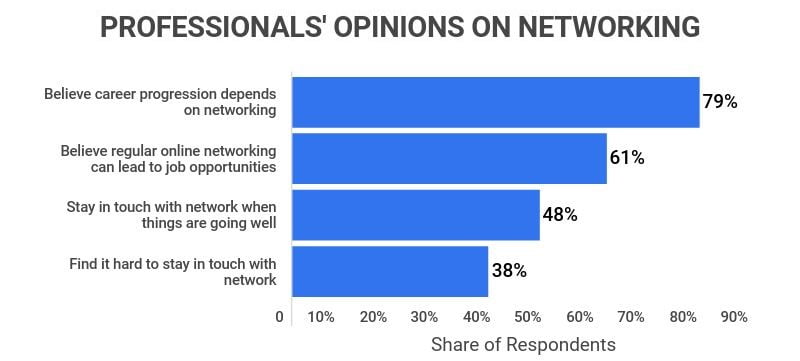
And it’s not as difficult or intimidating as you might think!
Start by attending smaller events, such as meetups or workshops.
Then, work your way up to larger conferences and conventions.
You can also join professional organizations or associations in your industry.
Not only will you make valuable connections, but you’ll also gain access to exclusive resources and networking events.
Create a budget and stick to it
One of the most important things you can do for your financial health is to create a budget and stick to it.
A budget will help you track your spending, save money, and reach your financial goals.
It’s also a great way to get a handle on your debts and reduce stress.
At the time of this article, I’m 28 years old.
I make a six-figure income and have achieved financial confidence and freedom.
Yet, I see a lot of people my age struggling financially even if they have a good career and opportunities…
Why is this?
One of the reasons I believe is because they don’t budget, nor organize their finances.
To create a budget, start by tracking your income and expenses for one month.
Then, find ways to cut costs and increase your income.
Once you have a plan in place, review your budget regularly and make adjustments as needed.
If you’re not sure where to start, there are plenty of resources available online or from financial institutions. Watch this video from financial author Dave Ramsey to learn more:
Invest your money
Investing is one of the smartest things you can do for your future.
It’s a great way to grow your money, reach your financial goals, and secure your retirement.
Actually, here’s a cool fact: if you invested $5/day, it would be worth over $800,000 in 50 years!
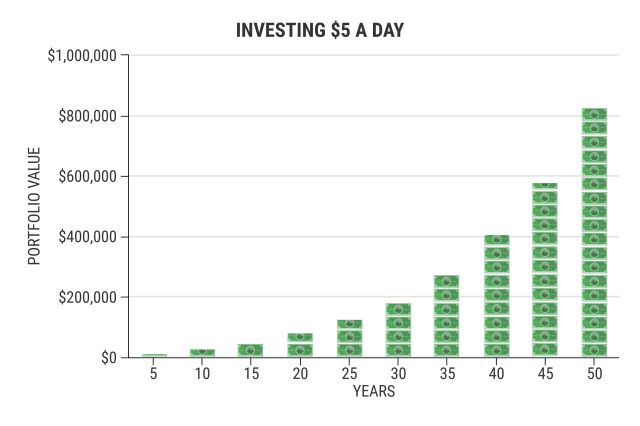
Start by doing some research and learning about the different types of investments.
Then, decide what type of investment is right for you.
There are stocks, ETFs, mutual funds, index funds, options, and the list goes on.
A licensed financial advisor or planner will be one of your best bets for making the right decision.
Please keep in mind that I’m not a financial advisor and can’t offer legal investing advice but this is just my personal thoughts.
Create a daily schedule
One of the biggest mistakes I see young men make is not having a daily schedule they live by.
If you feel confused and disorganized every day, I can almost guarantee it’s because you don’t have a real structure for your day and week.
For example, I know what I’m doing every single hour of the day all throughout the week.
This is called time blocking. A system where you block specific parts of your day for particular activities.
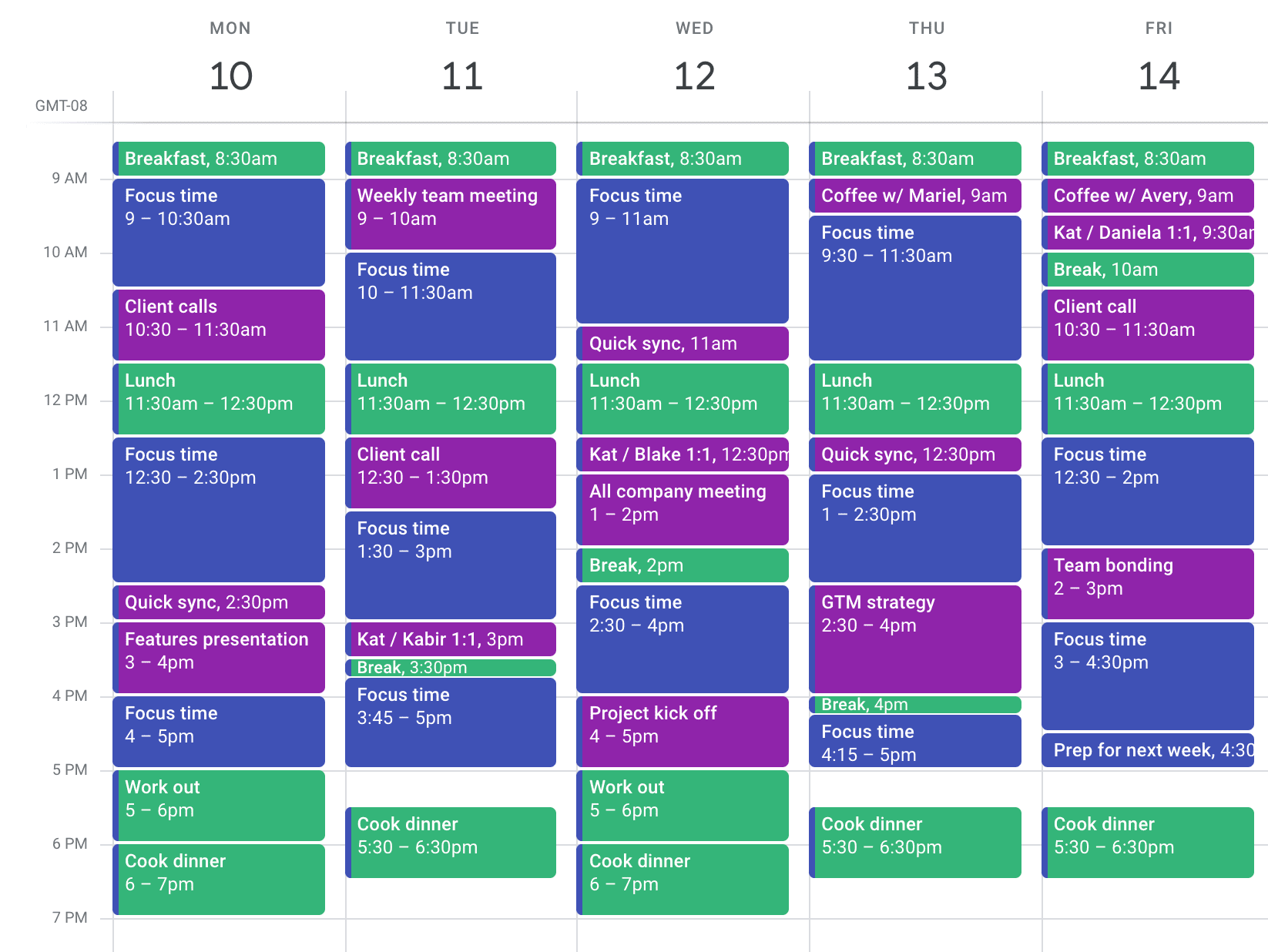
I highly recommend reading Getting Things Done by David Allen to learn more about this.
It’s helped me out a lot, and I think it can help you too.
Here’s a quick overview of how time blocking works:
- You start by picking the top three things you want to achieve in the next day.
- Then, you break down your day into hour-long blocks and assign each task to a specific block.
- Once you have your schedule mapped out, all you have to do is follow it!
Of course, there will be days where things come up and you have to adjust on the fly.
But for the most part, you can follow it smoothly.
Eat healthily and cut out bad eating habits
Health is power.
If you feel healthy, it increases your energy, productivity, confidence; you name it.
The problem is that a lot of people don’t know how to eat healthily.
Or, they have bad eating habits that they need to cut out.
If you want to feel your best, it’s important to develop some good eating habits and cut out the bad ones.
Here are a few tips:
- Try intermittent fasting (one of my favourites!)
- Make sure to include a mix of protein, healthy fats, and complex carbs at each meal.
- Avoid processed foods, sugary drinks, and excessive amounts of alcohol.
- Eat mindfully and listen to your body’s cues.
- Make sure you’re getting enough vitamins and minerals.
- Drink plenty of water.
- Try supplements like fish oil, vitamin D3, and nootropics.
On the flipside, try cutting out drinking alcohol (or at least too much), smoking, etc.
Wrapping up habits to have in your 20s
When it comes to habits to develop in your 20s, there’s no shortage of things I could cover.
But, this article hits some of the main ones.
I want you to focus on your career, developing goals, eating healthy, exercising, and managing your time better.
These all help you achieve the highest version of yourself.
Be patient too.
Slowly add on new habits and make them into a lifestyle where you don’t even think about them anymore.
Check out my online courses if you want to improve your habits, success, and growth.



